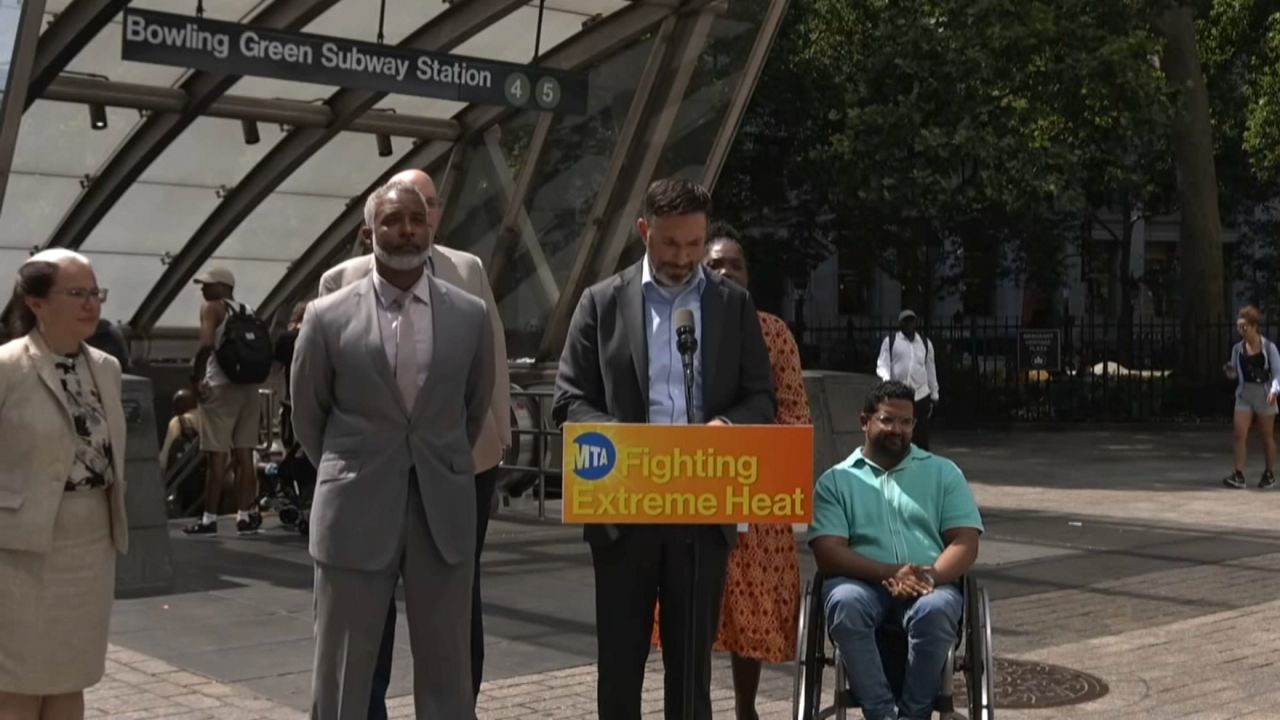The heat in New York City is only getting hotter.
Temperatures did not reach 90 degrees in New York City on Tuesday, but highs are forecasted to be at or above that mark over the next three days.
Amid the hotter temperatures, the MTA shared on Tuesday some of its plans to keep commuters safe.
The MTA said they begin preparing for the summer heat in March.
According to the agency, 99% of the air conditioning on subways and buses is working. Officials said a bus will not leave the depot if there is no air conditioning on it, but the MTA also asked riders to immediately report any trains or buses that do not have air conditioning.
Interim NYC Transit President Demetrius Critchlow said during the news conference that he’s also concerned about ensuring employees are cool and hydrated.
Track inspectors will be out on the commuter rails looking for buckling on the tracks, which can happen during extreme heat. Also, trains will run a little slow to produce less heat.
“This is not our first time dealing with heat. This is when our operations folks shine — when we have heat, when we have snow,” Critchlow said.
With the system being more than 100 years old, some equipment and signals dating back to the presidency of Franklin D. Roosevelt, and the recent pause on congestion pricing, the MTA said it is putting its attention on making sure the system is functioning.
According to the agency, by 2050, there will be triple the amount of days hotter than 90 degrees, which could lead to overheated communication and signal failures.
One of the items that may have to be cut from the capital program is resignaling, which would have reduced the amount of heat from trains, the MTA said.
“We’re still working to figure out the implications in how we respond to the impact on the current capital program,” said Jamie Torres-Springer, the president of the MTA’s Construction and Development. “There are a lot of projects that we will not be able to build, and we’ll be focusing on [the] state of good repair. We’ll be reporting to the board on that next week. We have, in a couple of cases, issued stop work orders on projects that do not strictly meet that state of good repair.”



